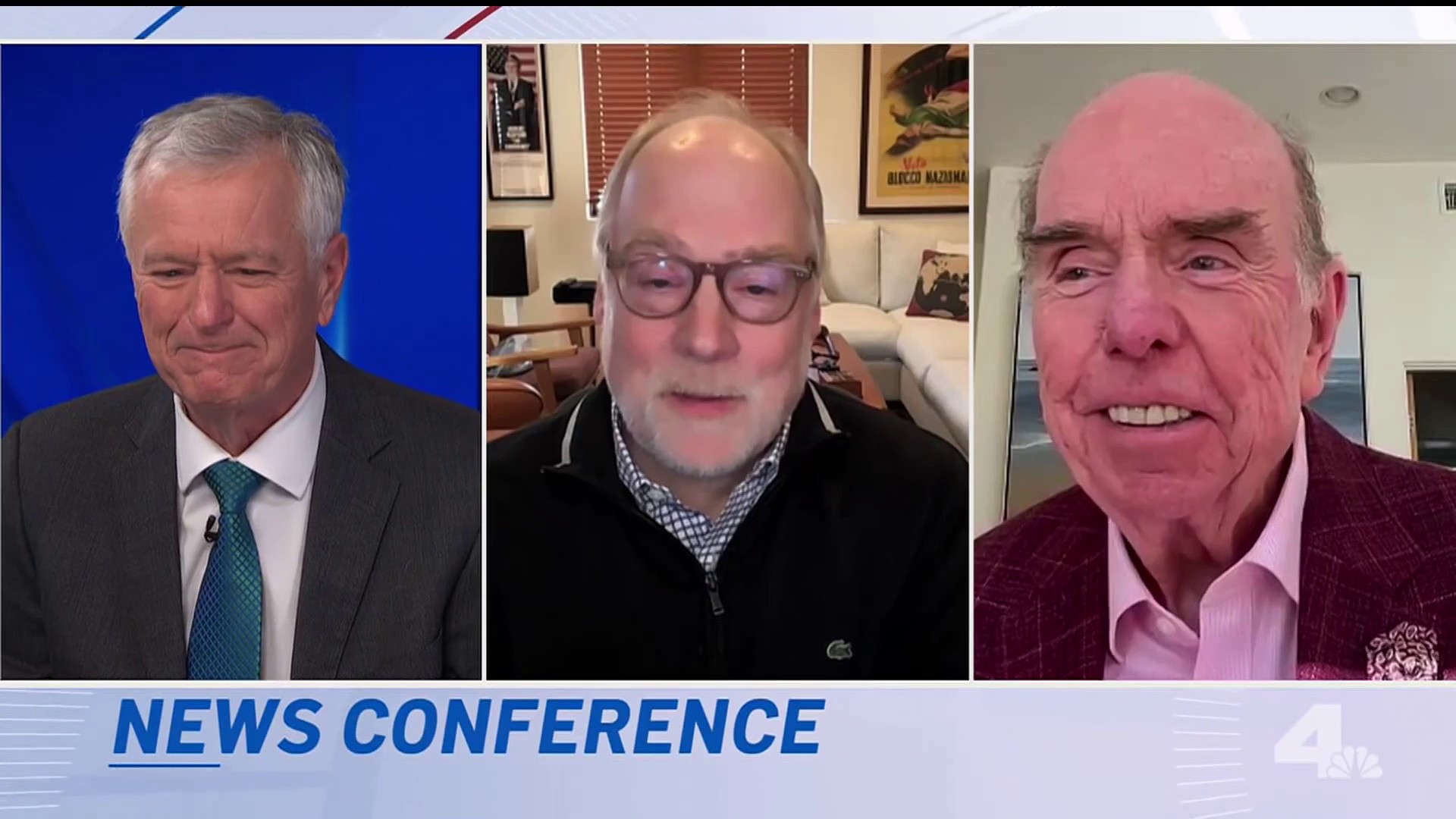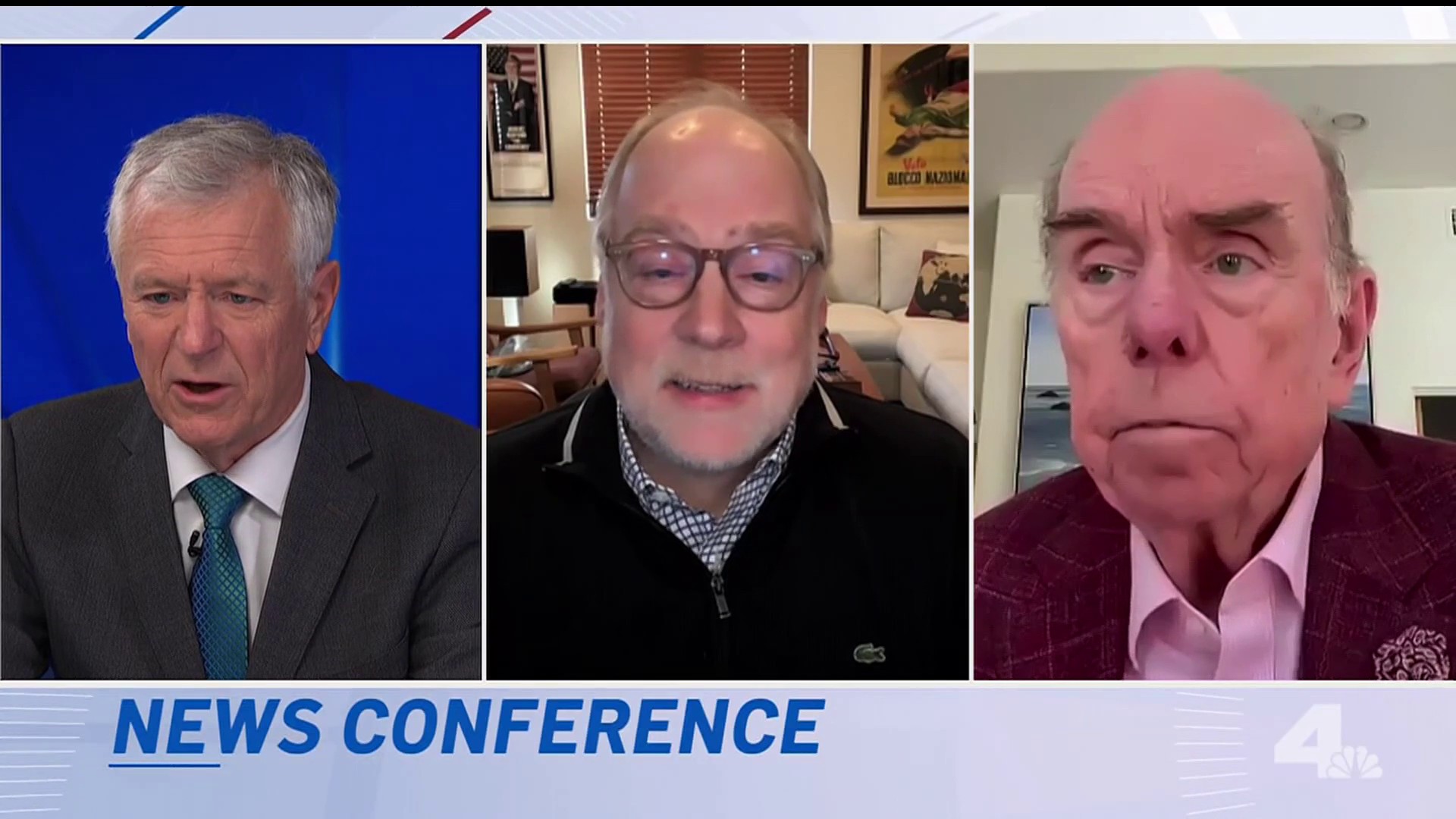Former South Carolina Gov. Nikki Haley dropped out of the 2024 presidential race Wednesday after losing every state but one — Vermont — in Super Tuesday's primary contests, a source familiar with Haley’s plans confirmed to NBC News.
Haley’s move cedes the Republican nomination to former President Donald Trump and effectively kicks off the general election, with Trump and President Joe Biden taking unofficial command of their parties early in primary season after a string of victories.
The “ball is in his court,” a source close to the Haley campaign said, referring to the former president.
Haley didn't announce an endorsement Wednesday. Instead she encouraged Trump, who is close to having the delegates needed to win the GOP nomination, to earn the support of Republicans and independent voters who backed her.
Get top local stories in Southern California delivered to you every morning. Sign up for NBC LA's News Headlines newsletter.
NBC News has projected a near-sweep for Trump in Tuesday's contests, with blowout results in every state except blue Vermont, where Haley won the state's delegates by a more than 4 percentage point margin, with about 96% of the expected votes in.
Politics
Local, state and national politics
The Trump campaign press secretary Karoline Leavitt said in an interview on Fox Business that she hoped Haley would endorse Trump "considering again that voters and states across this country have made their choice very clear.”
"It is beyond time for Nikki Haley to get out of this race and to unify around the president," she said. "He has been saying this for weeks, really for months. And so we encourage her to do just that, to adhere to the will of Republican voters.”
But as she turned hard against Trump in 2024 — and suffered a string of double-digit defeats in the early states, including in her home state of South Carolina — Haley resisted mounting pressure to drop out of the race, repeatedly insisting that more Americans deserved a choice.
Haley, a hand-picked member of Trump’s Cabinet from 2017 to 2018, was the first major Republican to launch a challenge against the former president more than a year ago. Her campaign had a slow start, but she gained momentum after multiple strong debate performances last summer and fall.
“I’m not giving up this fight when a majority of Americans disapprove of both Donald Trump and Joe Biden,” she said at her campaign’s watch party on the night of the South Carolina primary, adding that other states “have the right to a real choice, not a Soviet style election with only one candidate.”
But Republican primary voters made their choice, and Haley lost to Trump in all but one primary, Vermont, on Super Tuesday. Her only other victory was the low-turnout GOP primary in Washington, D.C.
While she kept her criticism of Trump measured for months in the originally crowded primary field, Haley upped her rhetoric after the New Hampshire primary — where she had one of her best showings with 43% — and the contest became a two-person race.
Haley told NBC last month that the former president was “diminished” and “unhinged,” explaining away her past support for Trump by bluntly saying “he is not the same person he was in 2016.”
By the end of her campaign, Haley was framing the primary in stark terms. “This is about, where exactly is the Republican Party gonna go?” she told rally attendees in Richmond, Virginia, on Feb. 29. Haley repeatedly brought up the party’s losses under Trump’s leadership and told her supporters that he “can’t win a general” election.
And she touted surveys like the Wall Street Journal’s December poll — which showed her with a big lead against Biden and Trump stuck in a closer race — at virtually every campaign event, framing herself as a more electable alternative for the GOP.
“I am giving you every red flag I possibly can about the direction that the country is going in. Now I just need people to hear it. I need states that are voting to act on it,” she said late last month to reporters in Grand Rapids, Michigan. “And I need to see that we can stop this sinking ship before it takes off.”
Although several 2024 GOP candidates gave their support for Trump after withdrawing from the race, Haley said last weekend that she no longer feels bound by a pledge she made to the Republican National Committee to support the party’s nominee.
“I think I’ll make what decision I want to make, but that’s not something I’m thinking about,” Haley said on NBC News’ “Meet the Press” about whether she will endorse Trump.
With her message of “new generational leadership,” Haley gained support from independents and even some Democrats — which led Trump and his allies to accuse her of not being conservative enough to be the party’s nominee.
“Not one person can tell you how I wasn’t conservative,” she said to reporters on Jan. 19th. “So you can go and say that I’m moderate. Show me where I’m moderate because I’m not.”
One of the issues that opened her up to this criticism was abortion, on which she struck a softer tone than most of the other GOP candidates running for president.
“As much as I’m pro-life, I don’t judge anyone for being pro-choice, and I don’t want them to judge me for being pro-life,” she said. “Let’s find consensus. … We don’t need to divide America over this issue anymore.”
While she called herself “unapologetically pro-life,” she long remained vague on what, if any, kind of federal abortion ban she would support, blaming the lack of support from 60 senators and calling instead for “consensus.”
“Can’t we say let’s ban late-term abortions? Can’t we say let’s encourage adoptions and good quality adoptions? Can’t we say that no doctor or nurse that doesn’t believe in abortion shouldn’t have to perform it?” she said in December in Davenport, Iowa. “Can’t we say that contraception should be accessible? And can’t we say that no state law should say to a woman who’s had an abortion that she’s going to jail or getting the death penalty. Let’s start there.”
Ultimately, her moderate- and independent-heavy coalition was not enough to overcome Trump’s strength in the Republican Party.
Before resigning in 2017 to join the Trump administration, Haley was the first female minority governor in the country in her home state of South Carolina. She previously served three terms in the South Carolina House of Representatives and before that was an accountant, which she often touted on the campaign trail.
This story first appeared on NBCNews.com. Read more from NBC News:



